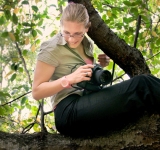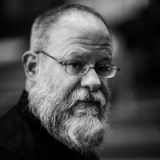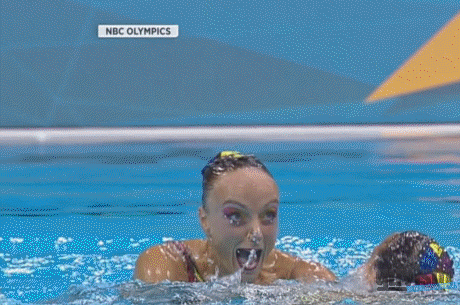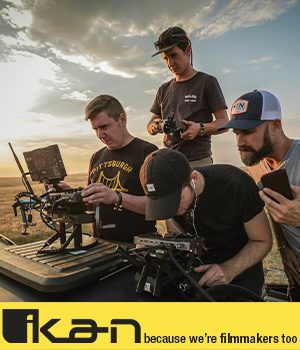- Forum
- General Discussion | Introductions | Off Topic Forum
- Photography General Discussion
- This legal judgement against photographer makes you think twice about how to turn away business.
This legal judgement against photographer makes you think twice about how to turn away business.
-

- Leilanee
- Photography Hooked
-
- Canon EOS 6D
- Followers: 96
- Posts: 783
-
Points:
634
-

- John Landolfi
- Super User
-
- Nikon D3S, D7100, Sony RX10, Canon G11, F4s, F2sb, RetinaflexIV etc, etc
- Followers: 1205
- Posts: 21605
-
Points:
40394
Post #270069
I worked in public service and our program could not refuse services to a family whose child qualified; if a child had adoptive parents who were gay or lesbian that would not affect them receiving services and working with all families was part of our job. Public programs are of course different than businesses but both are bound to follow appropriate laws.
It would probably benefit a photographer to find out what the laws are in their state related to running a business so they can determine the best ways to handle various situations.
Sharon
-

- JHoward
- Lone Wolf
-
- Canon 7D & 1D MK III
- Followers: 56
- Posts: 242
-
Points:
782
Post #270174
icepics wrote: I was thinking along the same lines as Tammy... I think it's illegal for a business to refuse to provide their product or service to someone based on age, race, sex, etc. I wouldn't think a photographer would have to give a reason for declining a job as it could be due to personal or family obligations etc., but in this case the reason given for not accepting the client is where they're getting into what could be discriminatory business practices.
I worked in public service and our program could not refuse services to a family whose child qualified; if a child had adoptive parents who were gay or lesbian that would not affect them receiving services and working with all families was part of our job. Public programs are of course different than businesses but both are bound to follow appropriate laws.
It would probably benefit a photographer to find out what the laws are in their state related to running a business so they can determine the best ways to handle various situations.
Actually no a private business does not have to give a valid reason to ban you from their services. Now the discrimination clause you cited is for Housing&Employment for the private sector. Also what you are speaking of in public service is governmental services, or government funded services cannot discriminate at all. But private owners of any business can tell you to leave at any point and time for any reason.
And I stand on my statement that the couple bringing suit against the photographer, is hypocritical, in that they expect acceptance of their wishes, but do not do the same for the photographer.
The beautiful thing about the US is I do not have to associate nor be friendly to anyone I do not feel like. It is called freedom, while you may not like it, that is how freedom works. While I may disagree with you, I will defend your right to believe how you choose.
-

- Tamgerine
- Lone Wolf
-
- Canon 5d Mark II
- Followers: 18
- Posts: 135
-
Points:
0
Post #270207
Joves wrote: But private owners of any business can tell you to leave at any point and time for any reason.
No. They can't. Because of the Civil Federal Civil Rights Act of 1964. It offers people...
"...full and equal enjoyment of the goods, services, facilities, privileges, advantages, and accommodations of any place of public accommodation, without discrimination or segregation on the ground of race, color, religion, or national origin."
But things can vary by state! For example...
Nevada legislation:
NRS 651.070 All persons entitled to equal enjoyment of places of public accommodation. All persons are entitled to the full and equal enjoyment of the goods, services, facilities, privileges, advantages and accommodations of any place of public accommodation, without discrimination or segregation on the ground of race, color, religion, national origin, disability, sexual orientation, sex, gender identity or expression.
Definition of public accommodation: A public accommodation is a private entity that owns, operates, leases, or leases to, a place of public accommodation. Places of public accommodation include a wide range of entities, such as restaurants, hotels, theaters, doctors' offices, pharmacies, retail stores, museums, libraries, parks, private schools, and day care centers. Private clubs and religious organizations are exempt from the ADA's title III requirements for public accommodations.
So no. Private businesses can't deny you service for "any reason" such as being black or Christian, and in some states sexual orientation is included in that. Freedom doesn't mean we get to do whatever we want willy nilly. There are such a thing as protected classes.
Tammy Hineline, Illustrative Photographer
www.tammyhineline.com
www.facebook.com/tammyhinelinephotography
www.tammyhineline.500px.com
-

- garyrhook
- Oh Wise One
-
- Nikon D850, Nikon D750, Panasonic G7K
- Followers: 912
- Posts: 11103
-
Points:
67681
Post #270211
Tamgerine wrote: No. They can't. Because of the Civil Federal Civil Rights Act of 1964. It offers people...
I was wondering about that. Thanks for bringing it up.
"...full and equal enjoyment of the goods, services, facilities, privileges, advantages, and accommodations of any place of public accommodation, without discrimination or segregation on the ground of race, color, religion, or national origin."
Which, interestingly enough, doesn't mention gender.
Definition of public accommodation: A public accommodation is a private entity that owns, operates, leases, or leases to, a place of public accommodation. Places of public accommodation include a wide range of entities, such as restaurants, hotels, theaters, doctors' offices, pharmacies, retail stores, museums, libraries, parks, private schools, and day care centers. Private clubs and religious organizations are exempt from the ADA's title III requirements for public accommodations.
Except that I, as a photographer, am not operating a public accommodation. I provide a service, but I don't fit into the above categories if I don't have an office or studio that the public could walk into. So I wonder if I'm subject to that requirement? I think not...
So no. Private businesses can't deny you service for "any reason" such as being black or Christian, and in some states sexual orientation is included in that. Freedom doesn't mean we get to do whatever we want willy nilly. There are such a thing as protected classes.
So I think you made a generalization here that isn't valid. But I could be wrong.
Suffice it to say, there are ways to decline business. These people don't seem to have handled this well, and the (potential) customer is way out of line. IMO.
Gary
www.grhookphoto.com
facebook.com/grhookphoto
-

- Tamgerine
- Lone Wolf
-
- Canon 5d Mark II
- Followers: 18
- Posts: 135
-
Points:
0
Post #270239
garyrhook wrote: Except that I, as a photographer, am not operating a public accommodation. I provide a service, but I don't fit into the above categories if I don't have an office or studio that the public could walk into. So I wonder if I'm subject to that requirement? I think not...
Actually, you are. If you offer a service to the public, it falls under those laws and regulations regardless of whether you own a studio or stand alone building. If you're in business, you operate somewhere, right? Unless you don't have a legal business license or pay your taxes, in which case you don't really count as you're part of the shadow economy at that point.
This would also include for example makeup artists or hairstylists who perform on location, or caterers who work out of their home kitchens. Or dog groomers, or nannies. Are you saying that because these legal businesses don't have a physical retail space they are not subject to the Civil Rights Act? Because they are.
Generally speaking, it may help to think of public accommodations as most (but not all) businesses or buildings that are open to (or offer services to) the general public. More specifically, the definition of a "public accommodation" can be broken down into two types of businesses / facilities:
Government-owned/operated facilities, services, and buildings
Privately-owned/operated businesses, services, and buildings
Privately-owned/operated businesses and buildings. Privately-owned businesses and facilities that offer certain goods or services to the public -- including food, lodging, gasoline, and entertainment -- are considered public accommodations for purposes of federal and state anti-discrimination laws. For purposes of disability discrimination, the definition of a "public accommodation" is even more broad, encompassing most businesses that are open to the public (regardless of type).
civilrights.findlaw.com/enforcing-your-c...-accommodations.html
Generally, places of public accommodation are businesses or buildings that are open or offer services to the general public. These facilities can be publicly or privately owned and operated. Federal, state and local governments own and operate facilities such as courthouses, jails, hospitals, parks, and other places. They also provide services, programs, or activities including transportation systems and welfare programs. Privately-owned businesses and facilities offer certain goods or services to the public.
civilrights.uslegal.com/discrimination-i...ublic-accommodation/
And of course the section itself: www.citizensource.com/History/20thCen/CRA1964/CRA2.htm
You're certainly correct that there are ways to deny business, there always are. However, as a business if you choose to violate the laws and regulations you have to operate by, you leave yourself open to consequences. Anyone can sue anyone for anything they want, whether they win is a different matter. In this case the photographers did not win.
As mentioned before, state laws can vary and ultimately it is up to a judge to implement the law. There are times when the law can be less than black and white. They may appeal and get a reversal, who knows. But I doubt it.
Tammy Hineline, Illustrative Photographer
www.tammyhineline.com
www.facebook.com/tammyhinelinephotography
www.tammyhineline.500px.com
-

- garyrhook
- Oh Wise One
-
- Nikon D850, Nikon D750, Panasonic G7K
- Followers: 912
- Posts: 11103
-
Points:
67681
Post #270257
I reread the article, and I"m thinking that ultimately the Supreme Court will reverse the decision, just like they did for the parade organizers.
Gary
www.grhookphoto.com
facebook.com/grhookphoto
-

- Paris Gal
- Photography Hooked
-
- 5D mark III & EOS R
- Followers: 148
- Posts: 542
-
Points:
4538
Post #270310
I'm not sure if this lawsuit would have even come up if the product or service wasn't related to weddings, a business wouldn't be asking potential customers if they're gay or straight or other questions about their personal life (unless the business is for example a law office handling a personal matter for a client in which case they maintain confidentiality).
Sharon
-

- Scotty
- Agent 007
- James Bond, PT mod.
- Followers: 1088
- Posts: 9871
-
Points:
14754
-

- Stealthy Ninja
- Moderator
-
- Fuji X stuff and a 1DsIII for some reason
- Followers: 982
- Posts: 16300
-
Points:
6837
Post #270357
Scotty wrote:
Paris Gal wrote: I'm staying clear of this one
You and I both.
Homophobe.
-

- Scotty
- Agent 007
- James Bond, PT mod.
- Followers: 1088
- Posts: 9871
-
Points:
14754
-

- Stealthy Ninja
- Moderator
-
- Fuji X stuff and a 1DsIII for some reason
- Followers: 982
- Posts: 16300
-
Points:
6837
- Forum
- General Discussion | Introductions | Off Topic Forum
- Photography General Discussion
- This legal judgement against photographer makes you think twice about how to turn away business.
Latest Reviews
The Canon EOS R100 is an entry-level mirrorless camera introduced in 2023. But just because it’s an entry-level camera doesn’t mean it’s a bare-bones camera. Find out why in this review!
Nikon’s retro-looking Nikon Zfc is anything but retro. Under its classic body is a host of features and amenities that make it a worthwhile compact mirrorless camera for 2024.
The Canon EOS R50 is one of the newest R-system cameras from Canon. Is it worth your money? Find out all the details you need to know in this comprehensive review.
The Sony FE 70-200mm f/2.8 GM OSS II is Sony’s flagship mirrorless zoom lens. As such, it’s loaded with features and has a top-shelf build quality that makes it a top pick!
Forum Top Posters
-
1Scotty 5 posts
-
2Foggy 4 posts
-
3TCav 4 posts
-
4No Show 3 posts
-
5CaptNemo 2 posts
-
6Roger Lang 2 posts
-
7Otto F 2 posts
-
8Fitch 2 posts
-
9Kenta 2 posts
-
10Pork Express 2 posts
Latest Articles
The Insta360 has one of the best lineups of action cams and 360-degree cameras. With these Insta360 accessories, you can elevate your photography and videography game!
Creating impactful photos of landscapes depends on many factors, not the least of which is your talent behind the lens. This guide explores other elements required for the best product.
The Canon EOS R100 is an entry-level mirrorless camera introduced in 2023. But just because it’s an entry-level camera doesn’t mean it’s a bare-bones camera. Find out why in this review!
Are you ready to upgrade your camera? Before buying new, you might consider the value of purchasing used gear to save money.
The Olympus OM-D E-M10 Mark IV is a micro four thirds camera released in 2020. It’s an entry-level system along with the OM-D E-M5 Mark III. Use this guide to determine which one is best for you!
Blue hour photography might not be as well known as golden hour photography, but it is every bit as good a time to create epic images of landscapes. Learn how in this quick tutorial!
Nikon’s retro-looking Nikon Zfc is anything but retro. Under its classic body is a host of features and amenities that make it a worthwhile compact mirrorless camera for 2024.
Moving from taking snapshots of your dog to creating beautiful images doesn’t have to be that difficult! Use the tips outlined in this dog photography guide, and you’ll get better results in no time.





















